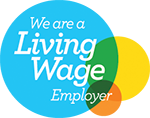
Posted by BECTU Communications on 14 March 2019
London’s VFX workers are still reeling from the revelation that artists who worked on the Oscar-winning Bohemian Rhapsody are still waiting to be paid (with little hope of receiving more than a tiny fraction of the money they are owed).
The Freddie Mercury biopic had outsourced work to London-based outfit Halo VFX – a company that went into administration last November. Artists were collectively left with six-figure bill that was unpaid. As a BECTU official, I’ve been chasing payment for four members totalling £53K (with one member alone owed over £27k), and I’m aware of many others who are also unpaid.
People who were trading as a limited company are the worst hit – they receive no relief from the state in the way that employees do and they are at the back of the queue when Halo VFX’s assets are being redistributed. Many will get nothing, having been previously told that “it’s not a matter of ‘if’ you will get paid, but ‘when’”.
Halo VFX’s directors have a number of questions to answer. This was not a minor collapse – they have debts of around £1m.
Conversations with the union have been extremely limited and most of the directors respond only to letters and have stated they will not meet the union while in administration.
This situation is not helped by the fact that Halo VFX has a number of directors in common with another separate company – E-Post Ltd -which trades as ‘Halo Post Production’. While these are listed as completely separate companies, we have spoken to members were under the impression it was part of the same organisation, sharing runners and went to the same Christmas party.
The Companies House website shows that Halo Visual Effects Ltd, a company founded in February 2016 traded with four directors, three of whom are also directors of E-Post Ltd (all three were also, incidentally, directors of another company – Halo Post Production Ltd which was dissolved in January 2018). This causes confusion and frustration when you have entities registered as completely separate companies with similar people involved.
We are now consulting BECTU members working in VFX to decide what our guidance should be going forward. Some of the options that we would have to consider would be to advise members to either refuse to take work where they are employed as a limited company going forward and to insist upon being paid through PAYE.
Another option would be to advise members who are working as freelancers to insist upon weekly invoices and immediate payment terms – and to walk away from any employer the moment a payment deadline is missed.
Our opinion is that we must now advise our members to exercise extreme caution of they are working for any company that also has any of the Halo VFX Ltd directors on board. This opinion is based on the fact that these directors have now run a company that employed freelance contractors without paying them all fully.
None of these are attractive options for our members, but we are sure that we will be in this position again because this industry has an ethical black hole that needs to be fixed.
This brings us to Bohemian Rhapsody. Some of the VFX community have expressed concerns about the way that reporting has focussed on a feature film that is largely blameless in all of this. Bohemian Rhapsody paid all of its bills to Halo VFX, and it is unfortunate that the unpaid invoices were for work that was done for Halo VFX on the movie itself. In this respect, Bohemian Rhapsody was just very unlucky (though nowhere near as unlucky as the crew who haven’t been paid).
But the fact remains that all of the major motion pictures that outsource their work to VFX houses (and the vast majority do outsource this work) are also outsourcing risks. This may be how the industry is structured, but there needs to be some responsibility taken by the Major Motion Picture studios to work with their suppliers to ensure that the industry treats people fairly.
One of the Halo VFX / E-Post directors is quoted [£] in The Daily Telegraph saying that “this particular sector is the hardest to succeed in that I’ve experienced.” VFX workers routinely speak to BECTU about major motion picture companies that are able to make unreasonable demands for ‘changes’ knowing that the VFX houses are operating in a cut-throat industry that will accept these risks to secure the work. In Halo VFX’s case (as in so many others) this risk is further outsourced to workers who are employed on contracts that call for almost unlimited unpaid overtime.
Bohemian Rhapsody may not be directly to blame, but it is part of a wider industry that is. I understand that some of the Life of Pi workers who lost out when ‘Rhythm and Hues’ went under eventually got some of their unpaid wages, and the union is now calling on the industry to establish a fund to pay the VFX artists who have been hit by this collapse – and others that may happen in the future.
BECTU has tried to engage with the industry, urging them to stand together and establish a code of practice that protects the workers who suffer as a result of this unbalanced power-relationship. Many of those companies have refused to do so.
We are willing to sit down with the employers to discuss this at any time, but it is beginning to look like the only way that this can be fixed is if the workers themselves are prepared to stand together to change things. For this reason, we will continue to campaign to unionise UK VFX.
Paul Evans, BECTU Assistant National Secretary
Comments
Sorry, comments are not currently enabled for this post.

